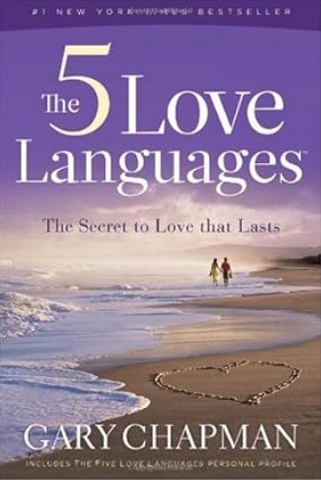"love is kind and patient, never jealous, boastful, proud nor rude
love isn't selfish nor quick tempered
it doesn't keep a record of wrongs that others do
love rejoices in the truth, and not in evil
love is always supportive, loyal, hopeful, and trusting
love never fails!"
1st Corinthians 13:4-8
"4 Don’t compare yourself with others. Just look at your own
work to see if you have done anything to be proud of. 5 You
must each accept the responsibilities that are yours."
Galatians 6:4-6
'nuff said
also on this page: the eight types of love from ancient Greece,
"The Five Love Languages" and "Nonviolent Communication"

The ancient Greeks were aware of eight different types of love:
AGAPE
altruistic love
★ purchasing a young person a good video game they've been yearning to play ★
★ giving people in homeless circumstance healthy food and water ★
PRAGMA
enduring love
★ doing hard work for our future ★
★ virtuous, saintly efforts by such Joan d'Arc and Jesus Christ Himself ★
EROS
passionate love
★ romantically kissing one's date at a high school prom ★
★ flashing a big smile to an attractive person ★
PHILIA
"Platonic" love
★ remaining pen pals with someone overseas ★
★ going to a new friend's birthday party ★
STORGE
devoted love
★ donating a kidney for a family member ★
★ visiting for Thanksgiving, for Christmas ★
LUDUS
playful love
★ card games at a party such as Go Fish and Uno ★
★ putting "bunny ears" on someone for a picture ★
MANIA
obsessive love
★ high school crushes ★
★ the "bronies", men (like me) who genuinely enjoy the show "My Little Pony" ★
PHILAUTIA
self-love
★ praying the "Serenity Prayer" for example ★
★ enjoying a good bubble bath after working all day ★

"The Five Love Languages" by Gary Chapman (Gary Chapman (author) - Wikipedia):
-
Words of affirmation (compliments, praise and appreciation)
example: "You did so good at painting!" "Wow you're so smart at computers!"
-
Quality time (investing in shared experience together and giving each other undivided attention)
example: watching a good movie with family members, playing board games with friends, patiently listening to a partner vent
-
Physical touch (showing physical affection, such as giving your partner a (permitted) hug or kiss)
example: hugging someone in homeless circumstance, kissing a friend (each with permission, perhaps tacit)
-
Acts of service (doing something that helps a partner such as running an errand)
example: changing a tire for people by a highway, fixing someone's thermostat
-
Gifting (giving others a present that demonstrates care and thoughtfulness)
example: purchasing supplies for a person's school participation or new business venturethe above is "bread and butter" for all relationships to become and remain joyous, happy, appreciatable and fruitfully fun


Gary from the cartoon show "Spongebob Squarepants "relatedly
SpongeBob SquarePants - Wikipedia
(my attempt at praise for the show creators and voice actors, "words of affirmation", one of the Five Love Languages)
along with words of compliment, "Compassionate Communication" (originally "Nonviolent Communication" oft abbreviated "NVC" by community members) developed by Dr. Marshall Rosenberg, PhD (Marshall Rosenberg - Wikipedia) is helpful for experiencing loving relationships
from Marianne's "A Cup of Empathy" video,
Compassionate Communication includes the following requisite aspects of respectful, honest, and peaceful speech, gesturing, emailing, phone calls and other communication methods:
-
Experiential Concurrence --- a "neutral way" to describe what we and others did | Gertrude: "Oh, you didn't do the dishes as I asked you." Samuel: "Sorry! I forgot, Gertrude."
-
Relatability of Feelings --- "to share our feeling" | Gertrude: "Well, I thank you for apologizing. I feel somewhat better about it now."
-
Expressing Yearnings --- to share regarding a need of ours | Samuel: "I am more aware now of how important cleanliness is to you. I'll wash these now if that's okay with you."
-
Requests --- "to ask stuff" | Gertrude: "Yes, please and thank you."